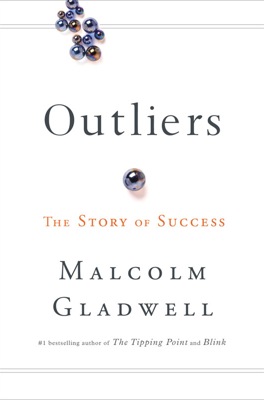Summary
The Matthew Effect and The 10,000-Hour Rule
Malcolm Gladwell explores the role of systemic advantages and dedicated practice in achieving success. He begins with the "Matthew Effect" where he describes how persons with initial advantages, like being older within a sports team's age cohort, receive better opportunities leading to further success. This concept extends beyond sports, affecting academic and professional arenas as well, emphasizing how systems often inadvertently cater to those who are already ahead.
In examining the significant impact of practice, Gladwell introduces the "10,000-Hour Rule," suggesting that expertise in any field requires around ten thousand hours of practice. This principle was supported by studies on elite musicians and validated by the experiences of icons such as The Beatles and Bill Gates, who had unique circumstances and opportunities allowing them to accumulate massive amounts of practice. Thus, Gladwell shifts focus from inherent talent to the importance of practice opportunities shaped by societal structures and individual experiences.
The Trouble with Geniuses
In discussing the limitations of IQ as a sole predictor of success, Gladwell presents contrasting life outcomes of individuals with high IQs, such as Chris Langan and Robert Oppenheimer, to argue that intellectual capabilities must be complemented by social savvy and practical intelligence—traits influenced significantly by one's upbringing and socio-economic conditions. The narrative debunks the myth that a high IQ inevitably leads to great achievement, instead highlighting a complex interplay of intelligence, environmental factors, and inherited social skills.
Cultural Legacies and the Power of Context
Gladwell delves deep into how cultural legacies shape behaviors and societal outcomes, using examples from the contentious feuds in Harlan, Kentucky to the downfall of Korean Air in the '90s due to cultural communication practices. He points out that deep-seated cultural norms and practices influence actions far beyond their original contexts and can both benefit and hinder success.
Overlooked Components of Success: The Stories of Joe Flom and Marita
By narrating the life of Joe Flom and the educational approach of KIPP Academy, Gladwell highlights how demographic factors, cultural backgrounds, and concerted cultivation, or lack thereof, play crucial roles in shaping one's chances for success. Flom's success as a lawyer was not just his personal merit but also a result of historical and social timings, such as his birth during the Great Depression and his cultural lineage in the Jewish community. Similarly, KIPP Academy aims to counteract socio-economic disparities by providing intense educational experiences that adjust for unequal opportunities among students.
Ultimately, Gladwell’s "Outliers" argues that success is not the result of sheer talent or intelligence but a convergence of opportunity, cultural legacy, and specific personal conditions, suggesting a broader and more inclusive understanding of how individuals achieve excellence.
